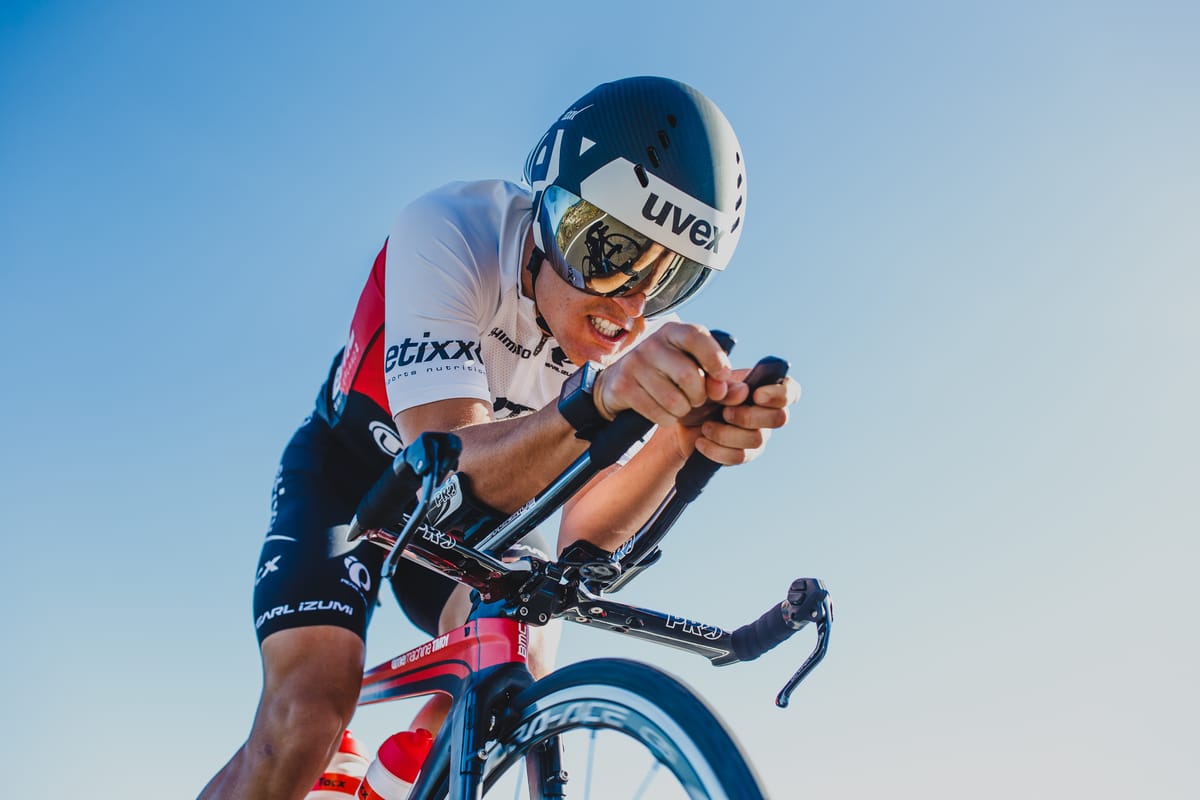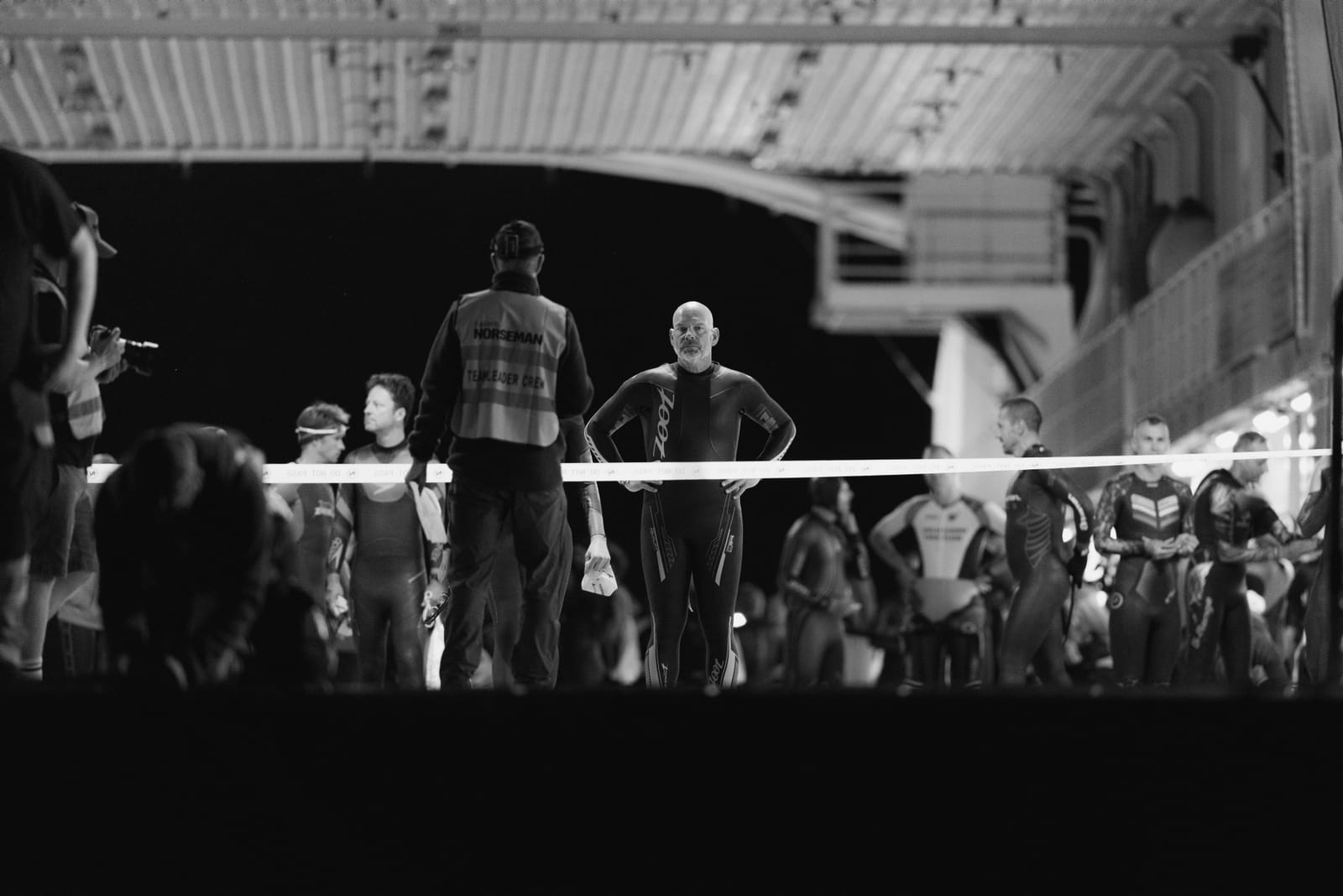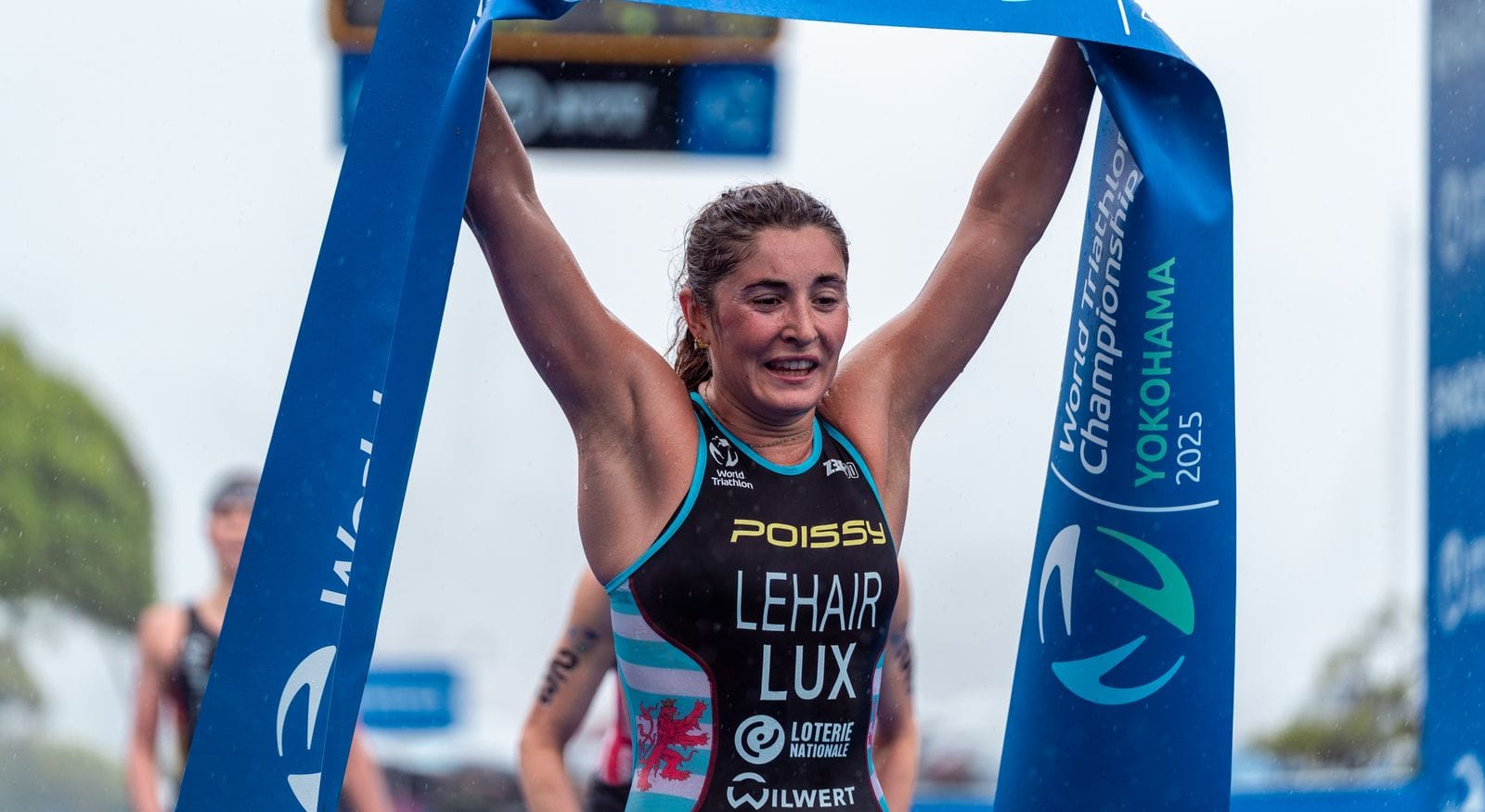Dan Wilson and Annabel Luxford balance professional triathlon with work and study, and we just don’t know how they do it. We caught up with the impressive athletes to chat about their work/life/sport balance, and learn what motivates them to keep up their crazy schedules.
“I combine working three days a week at NAB (National Australia Bank) with professional Ironman. There are no other athletes I race against doing that,” Annabel Luxford told Trizone. While most everyday people struggle to get off the couch after a long day at the office, Luxford has endless motivation to train before and after work. But it does come with some pitfalls.
The downside of managing work and triathlon
The main difference Luxford encounters is her inability to fully recover post-training and post-race. “I probably don’t get the chance to recover and hit some sessions as well as I may like,” Luxford said. “When you’ve got off the bike at 8:30pm and you have to be at work in twelve hours, plus you’ve scheduled another session before work in the morning, it can be tricky.”
Annabel Luxford’s hectic schedule is truly remarkable, and she’s humble in acknowledging the accomplishment of juggling the two worlds. “A lot of other athletes have Friday recovery, or Monday recovery. I get up and do one session, then go to work and do another session at night, then start again on Tuesday,” said Luxford. “I’m really proud of myself for managing to do it. I do grapple with wondering whether I’m trying to do to much without nailing one. It’s hard but it’s satisfying.”
Luxford’s ability to juggle her two hugely time consuming lives is truly incredible, but she’s not the only one managing two lives.
Dan Wilson juggles triathlon with a psychology degree
“It makes for a pretty full schedule during semester,” says Dan Wilson, referring to balancing racing with the psychology degree he’s currently studying towards. “But I’ve definitely enjoyed my study over the past four years. If I didn’t enjoy it and wasn’t passionate about it, I couldn’t do it.”
Wilson started his University path straight out of school with an Applied Science degree, but after a year he knew it wasn’t for him. Eight years later, he switched to Psychology. “As soon as I started psychology, it was different. It’s something I’m passionate about,” he said.
Like Luxford though, Wilson has experienced the tricky side of juggling two lives. “It’s difficult to juggle the two, but I manage [to muster] the enthusiasm and passion to do both.”
Both Wilson and Luxford defy the expectations many people have that triathlon professionals are either in the sport, or out of it. “Triathlon is so competitive they [athletes] think they have to dedicate 100% of their time to it. But I’ve done some of my best work balancing my studies with triathlon. I’ve got my best results doing that,” Wilson noted.
For Wilson it’s about the ability to escape the thought processes around triathlon, especially when times are tough. “When things aren’t going great in triathlon you can lose yourself in that other world,” said Wilson. “It gives you something else going on and a back up plan.”
Triathlon & life balance: Why do they do it?
It’s exhausting just listening to Luxford and Wilson’s schedules, so it begs the question why do they do it? “Sport is certainly a profession, but it’s very different,” Luxford said. “It’s my choice to have a career after sport.”
Wilson agrees; he’s keen to maintain his focus on his triathlon career, while also being mindful of the future. “I figure it’s good to have something to fall back on. Triathlon is hard, and even if you do make it, it doesn’t mean you’re set for life, it just means you’re getting by,” he said. “It’s good to have that other option and aspect of you’re life you’re passionate about.”
Both Luxford and Wilson are mindful that sport doesn’t alway finish on an athlete’s own terms. “If you’ve got your whole life invested in triathlon and things don’t go your way, you can get pretty down on yourself because there might not be something else to turn to,” said Wilson. “The study gives me something else going on. And a back up plan.”
Luxford agrees peace of mind is a huge bonus of managing two lives, saying “luckily for me, NAB have been really flexible, and the job gives me piece of mind. I always worried what I was going to do.”
Every athlete dreads retirement
Retirement from sport haunts even the most seasoned pros, as not only does it mean a change in routine but it also usually means a life in one location. “When sport is finished and the rest of us are doing other jobs, some athletes retire into regular life and they struggle being in one place,” said Luxford. “I’ve planted my feet in one spot for a while, and that’s been important with relationships with friends and family. I don’t want the nomadic style of life anymore.”
Wilson looks at retirement as a time when most athletes need to start from scratch. “If you wait for that day to come, you’ll have to start at zero,” he said. “You can chip away slowly now though, so when the day to hang up the triathlon shoes comes, you’re not starting from scratch.”
Other athletes look to careers in triathlon in retirement
Tim Reed, another Aussie pro, has also considered his life after triathlon, but he’s certain a regular routine is not for him. “I’ve got some ideas. I’ll need to have something I’m quite passionate about to be happy; something I can work quite hard on,” Reed told Trizone.
Reed, like many other pros, is well aware it’s the crucial first few years that athletes struggle to find a new routine after retirement. “I can go back to teaching, and I’m really interested in coaching,” he said. “Plenty of athletes go into coaching because they feel there are no other options, but I’m really interested in it. I still coach now because I genuinely love it. I love the strategy of figuring out what an athlete needs to do to do better in a game or a race, and work towards that.”
Whether they’re working, studying or even creating a general plan for what their life after triathlon might look like, all professional triathletes will have to retire one day. Dan Wilson and Annabel Luxford are two exceptions who have maintained another life to ensure they keep their options very much open. Incredibly, through juggling both worlds, they’ve both become two of Australia’s best triathletes and are among the world’s best too.
Perhaps challenging the brain in a different way and maintaining a passion and a different life outside of triathlon is they key to race success?







